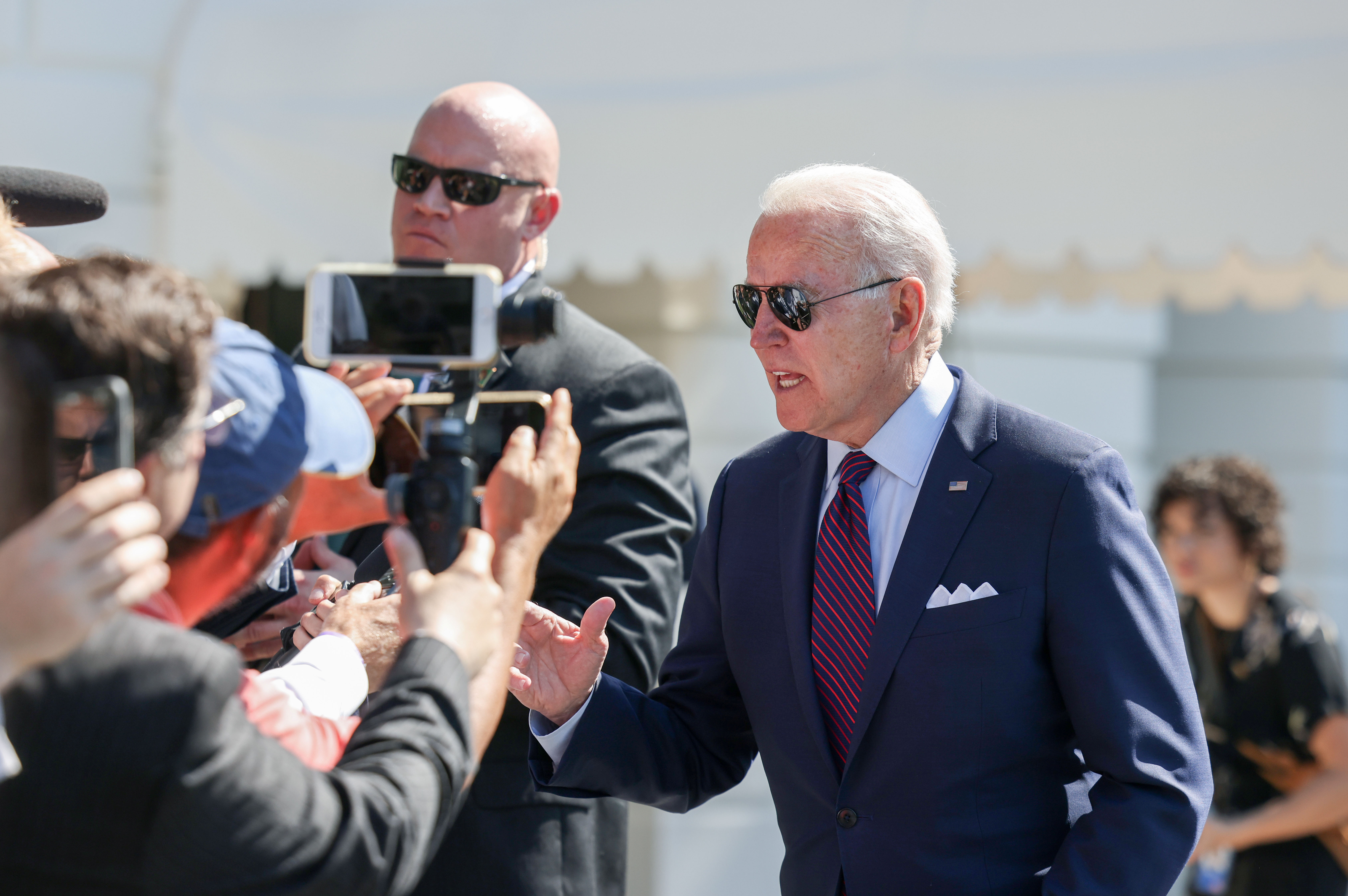
U.S. President Joe Biden speaks to reporters before departing the White House in Washington, U.S. en route to La Crosse, Wisconsin, June 29, 2021. REUTERS/Evelyn Hockstein
President Joe Biden is set to travel to La Crosse, Wisconsin Tuesday to sell the recent infrastructure deal he made with a bipartisan group of senators. He will tour the town’s public transit center before making a speech.
The deal is worth $973 billion. According to an internal White House memo, it’s four times the size of the infrastructure investment made in response to the 2008 recession and the biggest since the New Deal.
It also includes the largest investment in transportation, water systems and service in nearly a century.
The memo also referenced an analysis of the deal, which suggests 90 percent of the jobs it creates could go to workers without college degrees. A majority of net job gains before the pandemic went to college graduates.
The deal was reached last Thursday. However, concerns of its survival was put into question when President Biden suggested the deal would be held up until he received another bill from Democrats through the budget reconciliation process.
At a press briefing Monday, White House press secretary Jen Psaki said Biden “intends to sign both pieces of legislation into law”. Initial votes on both bills are expected in July.
It is yet to be determined what the bipartisan deal’s chances are to make it through Congress.
On Monday, Senate Majority Leader Mitch McConnell said he has not yet decided whether he will support the deal. He said he wants Biden to pressure Democratic leaders to say they will allow the bipartisan deal to pass without requiring the Democrats’ reconciliation bill to pass as well.
That Democratic bill is worth $6 trillion.
As this develops, the White House and Congress are working on a separate infrastructure bill. The House of Representatives is scheduled to vote this week on a highway, transit and water infrastructure bill.
It would invest up to $715 billion over five years. The bill overlaps with part of the bipartisan deal and could serve as a foundation for the Democrats’ bill later on.